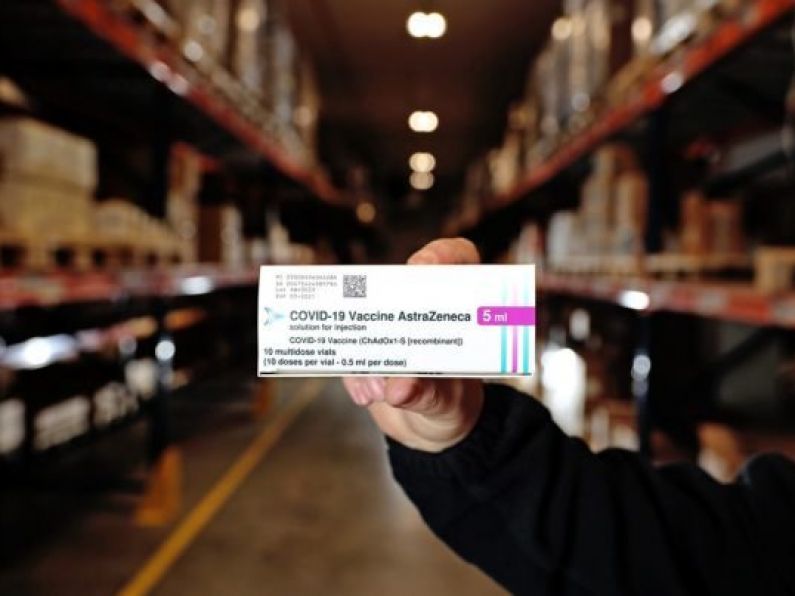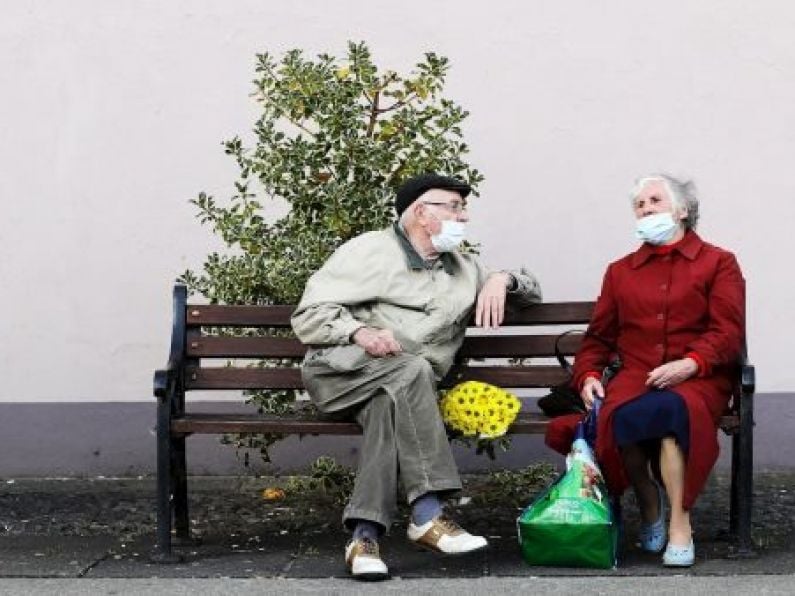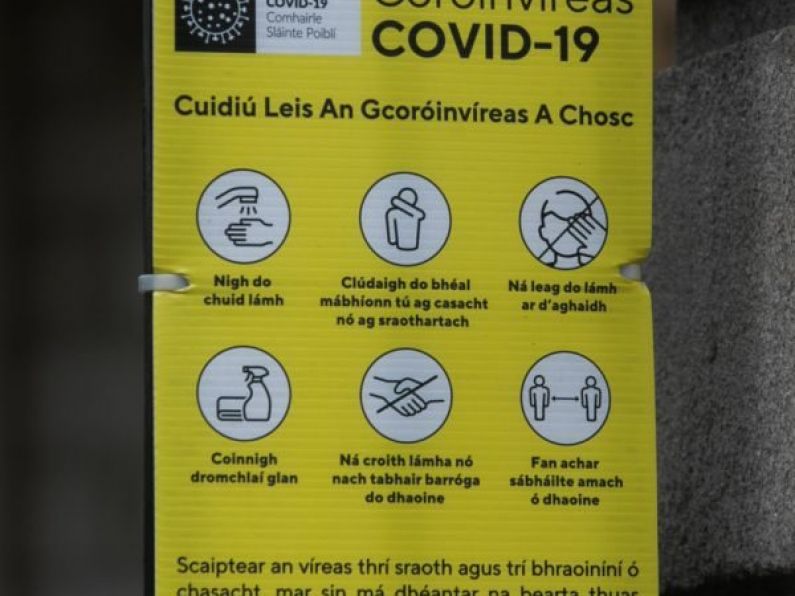The National Immunisation Advisory Committee have recommended that the AstraZeneca vaccine temporarily not be given until further notice.
It's following new information received from the Norwegian Medicines Agency last night, of four new reports of 'serious blood clotting events in adults after vaccination with Covid-19 Vaccine AstraZeneca'.
A Statement from the Department of Health this morning says that "it has not been concluded that there is any link between the COVID-19 Vaccine AstraZeneca® and these cases. However, acting on the precautionary principal, and pending receipt of further information, the NIAC has recommended the temporary deferral of the COVID-19 Vaccine AstraZeneca vaccination programme in Ireland."
The Astrazeneca vaccine was seen to be key to Ireland's vaccination rollout. It can be stored in a fridge, unlike the Pfizer and Moderna doses, and is significantly cheaper per dose (Around $4 compared to Pfizer's $20 price tag).
However, there has been considerable controversy over its rollout, with delays in batches arriving and discrepencies between the amount produced and exported in the UK, compared to the European sites.
In the meantime, the NIAC is due to meet again this morning, with a further statement following thereafter.
Why could it be harmful?
There have been a small number of reports of people experiencing blood clots in the days and weeks after their vaccination.
Earlier this week, the European Medicines Agency (EMA) reported one person in Austria was diagnosed with blood clots and died 10 days after vaccination, but it stressed there is “currently no indication that vaccination has caused these conditions”.
Another person was admitted to hospital in Austria with pulmonary embolism (a blockage in the arteries in the lungs) after being vaccinated, while one death involving a blood clot was reported in Denmark.
A 50-year-old man is also thought to have died in Italy from deep vein thrombosis (DVT), while there has been an unconfirmed report of another death in Italy.
Very few details have been given about the individuals, including whether they had any underlying conditions that already raised the risk of blood clots.
Which countries are involved?
Denmark, Norway, Iceland and Bulgaria have said they are temporarily halting all AstraZeneca vaccinations to investigate the reports, while Thailand is delaying use of the vaccine.
Italy, Austria, Estonia, Latvia, Luxembourg and Lithuania have suspended jabs from one particular batch of one million AstraZeneca doses, which was sent to 17 EU countries.
Spain has already administered all the doses from the batch, with the country's monitoring system to follow up on people after vaccination only detecting light side effects such as headaches, dizziness and intestinal troubles.
Other European countries have said they will not halt their AstraZeneca vaccine rollout, including Portugal, France and Germany.
So what has the European medicines regulators said?
The European Medicines Agency (EMA) backed the use of the vaccine on Thursday, saying its benefits outweighed its risks and it could continue to be administered.
The EMA said there had been just 30 reports of blood clots among close to five million people given the vaccine across Europe.
The UK’s Medicines and Healthcare products Regulatory Agency (MHRA) has also said there is no evidence to suggest the vaccine causes blood clot problems, after more than 11 million doses were administered across the UK.
What about the WHO?
A World Health Organisation (WHO) expert advisory committee on vaccine safety is currently looking at the vaccine but the organisations says there is no reason not to use it.
Spokeswoman Margaret Harris told a briefing that the AstraZeneca jab was an "excellent vaccine" and that no causal relationship had been established between the shot and the health problems reported, calling the pause in use "a precautionary measure".
Are scientists worried?
The overwhelming scientific opinion is that there is no certain link between blood clots and the vaccine, and the reported cases could easily be coincidental.
They argue the risks from Covid-19 far outweigh any potential side effects from the jab, with many saying blood clots are fairly common, regardless of vaccination.
Stephen Evans, professor of pharmacoepidemiology at the London School of Hygiene & Tropical Medicine, said: “The problem with spontaneous reports of suspected adverse reactions to a vaccine are the enormous difficulty of distinguishing a causal effect from a coincidence.
“This is especially true when we know that Covid-19 disease is very strongly associated with blood clotting and there have been hundreds if not many thousands of deaths caused by blood clotting as a result of Covid-19 disease.
“The first thing to do is to be absolutely certain that the clots did not have some other cause, including Covid-19.”
What has AstraZeneca said?
AstraZeneca said it has not found any increased risk of blood clots.
It said: “An analysis of our safety data of more than 10 million records has shown no evidence of an increased risk of pulmonary embolism or deep vein thrombosis in any defined age group, gender, batch or in any particular country.
“In fact, the observed number of these types of events are significantly lower in those vaccinated than what would be expected among the general population.”






